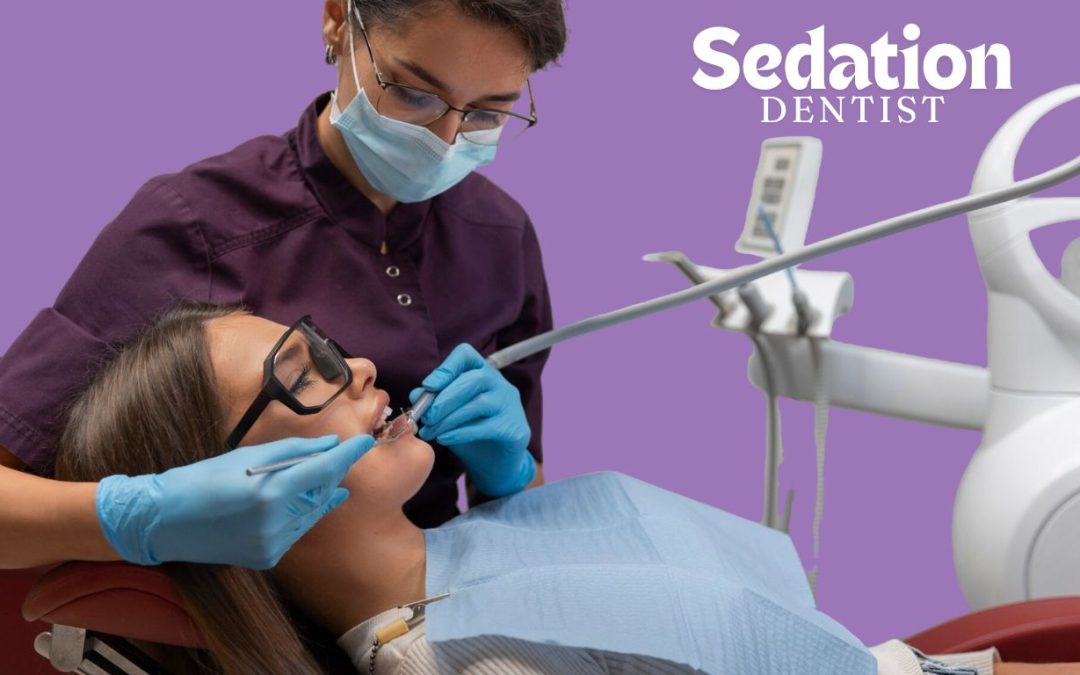Many people feel anxious about visiting the dentist for checkups or treatments. This fear can stem from a past painful experience or the worry of receiving bad news. Unfortunately Avoiding the dentist can lead to poor dental health, making the situation even more difficult, especially if treatment is needed.
Sedation Dentistry offers a solution to this anxiety, helping those with dental phobia or a sensitive gag reflex to receive the care they need in a comfortable and stress-free manner. In This blog, we will explore what sedation dentistry is, how it works, its benefits, potential side effects, and the precautions to follow.
What is Sedation Dentistry?
Sedation dentistry involves the use of medication to help patients relax during dental procedures. It’s also known as “relaxation dentistry,” though that’s not entirely accurate. Most patients remain awake but deeply relaxed. Sedation can be minimal, where you’re awake but relaxed; moderate, where you may slur your words and not remember much of the procedure; or deep, where you are on the edge of consciousness but can still be awakened.
The sedation process
The sedation process varies depending on the level of sedation required:
- Minimal Sedation: This is usually achieved through nitrous oxide, commonly known as laughing gas. The patient inhales the gas through a mask, which helps them relax. The effects wear off quickly, and the patient can typically drive themselves home.
- Oral Sedation: Oral sedation usually involves taking a pill, such as diazepam, about an hour before the procedure. This type of sedation can range from mild to moderate, making you drowsy but still awake. You may need someone to drive you home after the procedure.
- Deep Sedation and General Anesthesia: In this case, you will be given medication that makes you almost or completely unconscious. This is typically reserved for more complex procedures and is administered by a trained anesthetist.
common types of sedation used in dentistry in the UK
- Root Canals
- Dental Crowns
- Extractions
- Gum disease treatment
- Cleanings
- Fillings
- Cosmetic Procedures
Benefits of Sedation Dentistry
Sedation dentistry offers several Advantages, particularly for patients who experience anxiety or discomfort during dental visits:
- Reduced Anxiety: Sedation helps alleviate fears, making it easier for patients to undergo necessary treatments.
- Pain-Free Experience: It minimizes discomfort, making even complex procedures more tolerable.
- Time Efficiency: Sedation allows the dentist to perform multiple procedures in one visit, saving you time.
- Improved Cooperation: For patients with a strong gag reflex or difficulty sitting still, sedation helps ensure a smoother procedure.
- Amnesia Effect: Many patients don’t remember the procedure, which can be beneficial for those with extreme anxiety.
Side Effects of Sedation Dentistry
- Drowsiness: Depending on the type of sedation, you may feel drowsy for a few hours after the procedure.
- Dry Mouth: Some sedatives can cause a dry mouth, which can be uncomfortable.
- Nausea: In some cases, patients may experience mild nausea after sedation.
- Headache: A headache may occur as the sedative wears off.
- Amnesia: While the amnesiac effect is a benefit for many, some may find it unsettling not to remember the procedure.
Precautions to Follow
To ensure a safe and effective experience with sedation dentistry, it’s important to follow these precautions:
- choose a dentist who has reasonable experience in performing sedation dentistry. This will ensure that you are in safe hands, giving you much-needed peace of mind.
- Always discuss your medical history, current medications, and any allergies with your dentist before opting for sedation.
- Depending on the type of sedation, you may need to avoid eating or drinking for a specified period before the procedure.
- If you’re receiving moderate to deep sedation, arrange for someone to drive you to and from the dental office.
- follow your dentist’s instructions regarding rest, medication, and dietary restrictions after the procedure.
- Be aware of any unusual symptoms after sedation, such as prolonged drowsiness or difficulty breathing, and contact your dentist immediately if they occur.
Conclusion
Sedation dentistry is a valuable option for patients who want to ease their dental anxieties or undergo extensive procedures comfortably. By understanding the process, benefits, side effects, and necessary precautions, you can make an informed decision about whether sedation dentistry is right for you. Please consult with your dentist to discuss your options and ensure a safe and pleasant dental experience.
At Warwick Lodge Dental in Herne Bay, Kent, we will work with you to determine the best sedation option for your needs, ensuring you stay relaxed and comfortable throughout the procedure. Contact us now to discuss sedation service with our experts.

